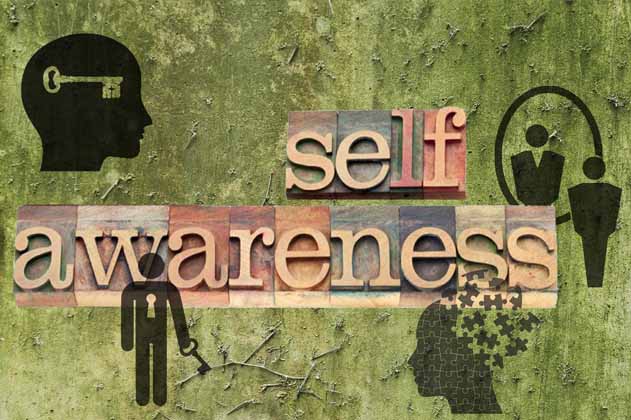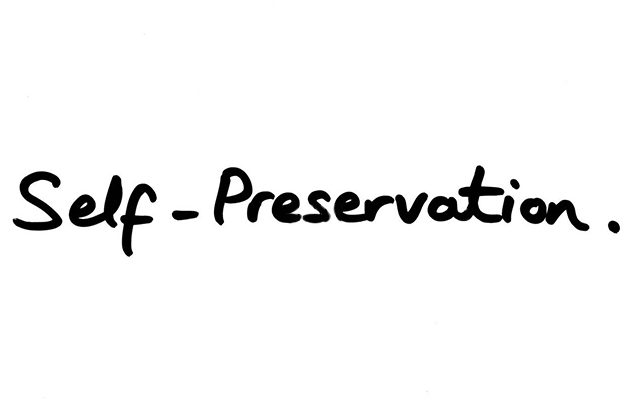
by Content Team | Mar 23, 2023 | Self-Awareness
Self-awareness is like good taste or humor. Although everyone believes they have it, it isn’t necessarily the case. Self-awareness is ultimately a rare quality, though. Nevertheless, numerous advantages of self-awareness help people succeed in their careers. Let’s examine self-awareness’s benefits and how it promotes professional development.
- Contributes to empathy
Self-awareness is one of the principles of empathy. That’s because we must first understand ourselves before we can understand others. According to the study’s findings, participants who made the biggest strides in identifying the many facets of their personalities also developed their capacity to measure other people’s mental states. Therefore, self-awareness lets us view situations from colleagues’ viewpoints, which helps us progress as workplace communicators.
- Improves communication skills
Adapting your communication style to particular audiences is simpler when you know it. When leading different teams, this ability is crucial. Better active listening abilities are also made possible by increased self-awareness. You may more readily develop loyalty and trust with your team by being more engaged.
- Assists with stress management
By developing self-awareness, you recognize feelings and behaviors that indicate your general well-being. So that you can act to change the situation if you start to feel annoyed or exhausted. You can change your lifestyle to improve your mental and physical health if you’re aware of it.
- This leads to better time management.
One of the cornerstones of time management is self-awareness. For example, do you know when your peak performance times are? You are most effective during these hours of the day. Plan analytical work for the morning if that’s when you feel most energized. On the other hand, if your energy flags in the late afternoon, this is an excellent opportunity to concentrate on less severe administrative activities.
- Facilitates decision making
The most effective leaders know who they are and can use their intuition to their advantage. Additionally, they are conscious of their sentiments to prevent their emotions from impairing their judgment. Self-aware people make better decisions because they know their biases and understand how they can influence them to make bad decisions.
- Increases self-control
The practice of patience is also helped by concentrating on self-awareness. This is because it necessitates considering your actions and acting most acceptably. For instance, you should communicate your rage and dissatisfaction when a team member commits a mistake. But if you practice restraint, you’ll consider your response before acting.

by Content Team | Mar 21, 2023 | Changing Personal Habits, Self-Awareness
Self-confidence can be seen but is difficult to develop. Everyone aspires to have self-confidence. But many are still determining where to begin. Confidence requires hard work and a willingness to step outside your comfort zone. You construct it piece by piece, recognizing what you currently have and celebrating every small victory. It takes time to develop.
Others want to see you succeed, even though you may not realize it. More than ever, resources are available to assist you in becoming the more confident, self-assured version of yourself. We’ll talk about what confidence is, how to develop confidence, and advice for accelerating your quest for self-improvement.
How to Build Confidence?
Everyone can learn to be more self-confident through a variety of effective methods. It’s acceptable if what works for some people doesn’t work for everyone else. Remember that you may always begin small and take baby steps before making big strides.
These are eleven strategies for increasing self-confidence:
- Stop comparing yourself to others.
- Celebrate your every victory.
- Accept your failures and learn from them.
- Step out of your comfort zone.
- Give yourself respect.
- Perform positive self-talk sessions.
- Keep track of your progress.
- Follow passions that make you happy.
- Stand up for yourself.
- Let yourself be curious.
- Think about your major goals.
- Read books, stalk people on social media, or listen to podcasts encouraging self-confidence.
4 Tips To Be More Confident
It takes time and a lot of ups and downs to build confidence. However, here are some pointers to keep in mind while you attempt to gain confidence:
- Be proud of yourself.
The way you choose to recognize even the smallest successes is appropriate. Remember where you started to keep track of your development. Consider how happy you would be with where you are now if you were that person.
- Don’t be afraid to open up.
Being open and vulnerable with strangers within your surroundings might be frightening. So feel free to open up when you discover new things and venture outside your comfort zone. First, be mindful of your surroundings and what you are doing. Then, as you develop, you can be aware of your fears and concerns, but don’t let them stop you from trying new things.
- Be specific.
To identify the areas where you wish to be more confident, you must focus on who you are. Where is your confidence lacking? Where are you the most certain? You can be more specific with your goals by identifying these factors. Having a plan will enable you to feel less stressed. Find out what would make you feel confident, then take purposeful steps to get it.
- Go on with confidence.
Although confidence originates from within, your community can support you in developing it. Ask friends and family for encouraging and comforting remarks to increase your self-esteem. You might also invite a reliable friend or relative as your accountability partner. They’ll let you know when you’re self-defeating and follow up on how you’re doing with confidence-boosting objectives. You’ll learn more about developing the confidence you need to be a better version of yourself after you achieve those goals.

by Content Team | Mar 17, 2023 | Self-Awareness
Most likely, you are a better person than you realize. Undoubtedly, some people make horrible decisions without thinking about them but try not to be too harsh on yourself. Perhaps you are one of the decent people.
You are most likely a better person than you believe yourself to be, whether it’s because of guilt or poor self-esteem. You have yet to meet your goals in the period you set for yourself. You, too, have made a lot of errors. But this does not mean you are a failure or a bad person. On the contrary, you have the potential to be a better person.
Let’s explore the signs that you might be more capable than you realize.
- You show kindness.
A good individual will always be courteous and kind. When you act this way, you treat people how you would like to be treated. This can entail holding open doors for strangers or getting change for shoppers in front of you at the checkout counter. Even the slightest things show that you have a nice heart because they are recognized. As a result, you feel happy when others are nice and kind to you.
- You are respectful.
When you bump into someone, you say “excuse me” or a variation on this phrase. Even if you didn’t mean to hurt someone, you should tell them if you accidentally bumped into them. Respecting other people’s privacy and personal space demonstrates maturity, a quality of a truly excellent person.
- You are honest.
Being truthful can be the most challenging thing to do at times and the easiest thing to do to others. If you always try to be genuine, no matter how difficult, you might be a better person than you believe.
Even though being honest can be painful, you can discover diplomatic ways to do it. You are better than you realized, as seen by your care and conviction.
- You are a positive person.
Maintaining a positive outlook is another quality of a good person with a strong character. With all the horrible things happening in the world, it is easy to grow to doubt, yet there is another angle to view these events.
You will develop the habit of finding the silver lining in every circumstance, discovering the light in the shadows, and admiring the best in everyone when you are truly better than you believe. It all comes down to being an optimist.
- You take responsibility.
Some people avoid taking accountability for their deeds. However, decent individuals can take ownership of their positive and poor actions.
Accepting responsibility does not imply that you are a horrible person. Anyone occasionally makes blunders and poor choices. However, accepting your failures means you have succeeded in something most important—humanity.
- You are wise, and you share your wisdom.
Being intelligent is not a requirement for wisdom. However, learning from events in life is essential. What makes this significant? Why does this make you a more moral person than you believe you are?
The good news is that you can teach people wisdom so they will avoid making the same mistakes you did. Unfortunately, many people don’t want to listen to knowledge since it is only sometimes well communicated, but others do.
Some people use this insight to learn so much that they can apply it daily. If you have gained experience and enjoy imparting knowledge to others, you are a decent person. Just be aware that not everyone will readily embrace it.

by Content Team | Mar 16, 2023 | Self-Awareness
What is the role of self-preservation in our life, relationships, and career? Sometimes our life becomes overwhelming because of so many commitments and responsibilities. You get engaged in your work, family, pursuits, and events, and the minutes, hours, days, and weeks pass quickly. You eventually get emotionally agitated, intellectually spent, and physically exhausted. Finally, you reach your lowest point, and there is no easy way out. But, your desire to succeed depends on your ability to protect yourself from harm and avoid self-destruction.
Hence, you must build and implement a personal self-preservation plan to help you fight off everything in the way of your goals. Consider these crucial factors when developing and carrying out such an agenda.
Key Factors for Self-Preservation
- Nurture
Carefully choosing your responsibilities is essential to nourishing yourself and preventing negative effects. You must set aside time to contemplate your life’s purpose and find it.
While you may not be able to grow in every role, you can by making the most of your strengths. Also, there is no need to compare or be sucked into what others do. Instead, use what is available and concentrate on developing your skills to become the best version of yourself.
As you work to fulfill your calling, your strengths and weaknesses will become clearer to you, and you’ll be better able to use both. Have faith in yourself! It doesn’t matter if other people believe in you or not. You are the beginning and the end. Never hesitate to express and pursue the unique calling, ambition, or desire that only you possess.
- Monitor
Make a self-evaluation. Maintain awareness of your needs, objectives, and obligations on a physical, mental, and emotional level. Keep an eye on your gas level and fill up before it reaches E. (empty). If not, you risk becoming stuck, halted, and off course. Monitoring might be as intricate as keeping a daily journal or checklist or as basic as doing morning meditation. In either case, it ought to enable you to recognize your level of tension and the degree of ease or enjoyment you are sensing.
You can track your progress towards completing projects and reaching milestones and the outcomes of your actions by keeping track of your monitoring. This lets you realize when work cannot be done as intended or when your plate is becoming too full.
- Re-evaluate
When you monitor and care for something properly, you get information for re-evaluating it. You allow yourself to review your expectations, commitments, plans, and goals. Life changes constantly.
Based on recent advancements, innovations, anticipated and unforeseen occurrences in your personal life, or even a change in power, what you described a year ago might no longer be applicable.
You might recognize a fresh concept, locate a simpler route, or learn that a new contact has the connections you need to be successful through re-evaluation. Re-evaluation is an opportunity to tweak, re-tool, reframe, and even improve your plan rather than a green light to give up. Instead of using this evaluation as a means of criticizing your goals, ambitions, and aspirations, conduct it as a comprehensive self-assessment. Instead, it should be a constructive pursuit where you may strengthen your idea, clarify your goals, or affirm your initial course of action so you can move forward.
- Lifeline
Finding help after realizing you need it is admirable. However, you need aid from outside of yourself to maintain you’re being if, after nurturing, monitoring, and reevaluating, you still struggle to find joy in your activities, are depressedly behind schedule, angry at failures, over-committed, or fear an avalanche that is quickly arriving. It is the time to grab hold of your lifeline.

by Content Team | Mar 14, 2023 | Self-Awareness
Self-organization is the process of achieving a goal by choosing the fastest route. Each person’s abilities, knowledge, and resources are acknowledged as part of this process. Self-organization necessitates active experimentation with methods, constant change, and knowledge acquisition from every failure. Because it motivates individuals and entire teams, self-organization is popular in many creative sectors.
- Facilitates the Arrangement of Meetings
The frequency of team meetings is determined by self-organization. Meetings should be brief but regular so that participants can measure their organization’s effectiveness and surroundings.
- Lets People Leverage Their Talents
Self-organization allows team members to identify the tasks they plan to accomplish. This method lets employees prove their worth and shine through their talents. Self-organization is all about team members using their talents and skills to achieve a common goal.
Everyone is capable of discovering their abilities. This lets the manager take a step back and let his staff advise him on workloads and responsibilities. Everything will be done well, and the employer’s interventions will be few if the team embraces self-organization.
- Facilitates Learning
A self-organized workplace goes hand in hand with ongoing improvement and self-taught people. One should always study to become a highly skilled employee in any field of competence. A corporation can maintain its competitiveness by acquiring new skills and information.
- Improves Motivation
More workplace autonomy increases team motivation, as a vast body of scientific research and literature demonstrates. That is the case since team members always appreciate working at their own pace and under no deadlines. In addition, when individuals can overcome daily obstacles independently, they also experience increased confidence.
- Enhances Responsibility
Team members are responsible for their activities thanks to self-organization. Therefore, they are more likely to choose an effective path and demonstrate independence and self-sufficiency since they have more freedom than the usual employee.












